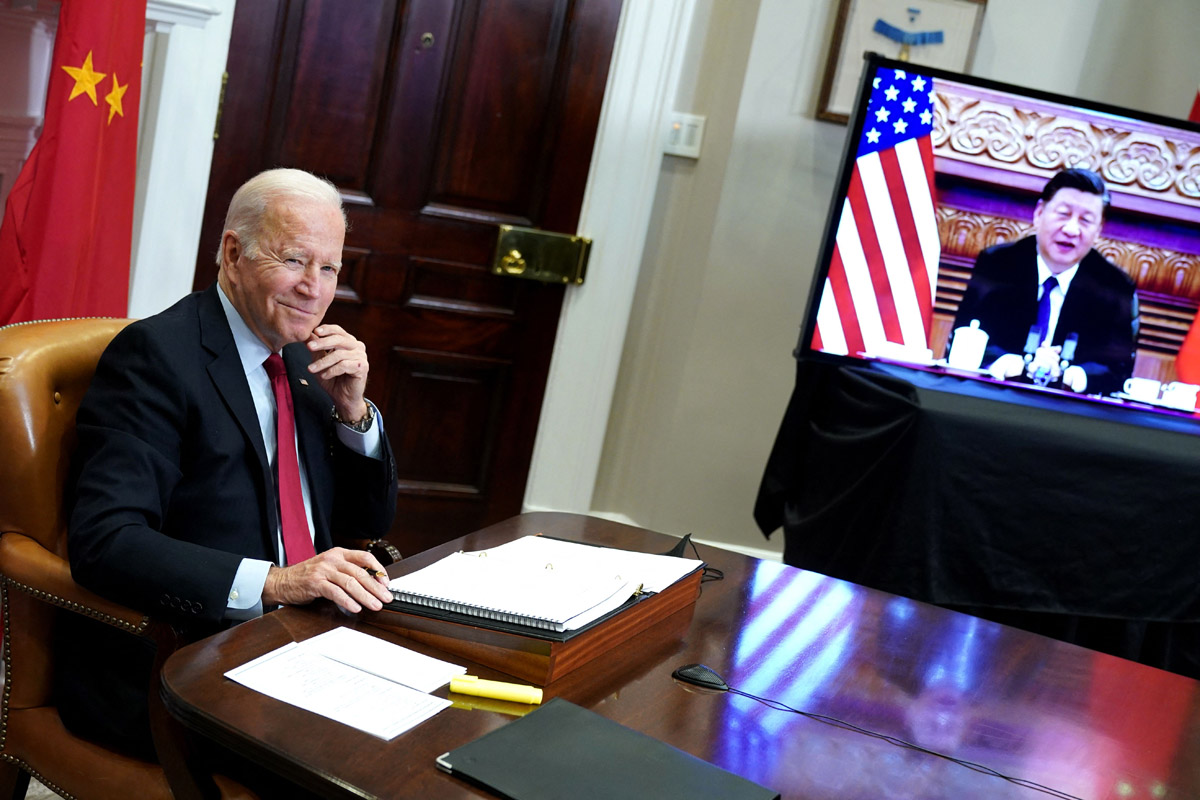In full compliance with recent communication trends, the U.S. and Chinese leaders Joseph Biden and Xi Jinping set for online negotiations on the evening of November 15. The President of the People's Republic of China does not leave the country due to the pandemic. While there is a plethora of issues on the agenda of bilateral relations, the importance of some of them goes far beyond the U.S. and China alone.
The meeting was long-awaited and a subject of myriad discussions. Foreign policy and security officials on both sides attended the online summit; the meeting lasted about three and a half hours and served as a so-called “closure” of the first year of the new U.S. administration in terms of foreign policy, where the confrontation with China was a key priority.
ZOOM diplomacy session discouraged those hoping for a controlled and limited rivalry between the two most powerful states in the modern world. At the same time, the main issues have remained unresolved, with each having the potential to provoke a further aggravation at any time.
Trade, human rights in China, climate change, and the overall security situation in the Indian-Pacific region were the focus of the meeting.
A prologue and a key reason for the meeting was the bilateral declaration following the climate summit – a surprise for many observers. In the declaration, the two states – that are simultaneously biggest geopolitical rivals and largest air pollutants – agreed on cooperation in solving the main problem of the planet and slowing down global warming. High-road diplomacy is the ability to use areas of mutual interest in order to cooperate, even in the conditions of general conflict. Both Washington and Beijing managed to realize the potential created by the climate summit to discuss a wider range of problematic issues.
The main mutual interest lied in the need to reduce the risks of confrontation. Since the Biden administration came to power, the trajectory of confrontation has become too steep, and problematic issues have multiplied real quick. Today, the United States and China continue the trade war started by Trump, diverge on ideological issues, and are increasingly drawn into geopolitical rivalry. The U.S. strengthens old alliances and creates new ones, while China is cautiously looking for new potential allies. The world is polarizing, the rates are rising. Certain issues, particularly Taiwan, have a high conflict potential.
In such conditions, any episode or accident can be the beginning of an uncontrolled chain of events. To eliminate an akin risk, both states should disclose their intentions. So, both leaders tried to set the meeting in a positive tone talking about friendship or remembering the ambiguous experience of the March negotiations in Alaska. However, eventually, the meeting was reduced to recriminations and did not end well.
The words of the Chinese leader about three new principles of the new era of bilateral relations - mutual respect, peaceful coexistence, and mutually beneficial cooperation - slightly recalled the late Cold War vocabulary between the United States and the USSR. But in general, this is considered a call for understanding and respect for each other's interests.
For example, China emphasizes the principle of sovereignty, while implying non-interference of the United States in its internal affairs, including the problems of Hong Kong and the Xinjiang Uyghur district. How much the U.S. can "understand and respect" here is still an open question.
The situation with Taiwan remains highly acute. Strengthening China's position brings closer the moment when keeping the status quo will be possible only due to the large-scale involvement of the United States. In recent weeks, against the background of increased Chinese air forces activity in Taiwan's air defense zone, many people ask whether the United States will support Taiwan in fulfilling its allied obligations. The United States hardly wants to fight for Taiwan - as in any other conflict with China's participation in East Asia. Avoiding such issues was also one of Biden's priorities during his meeting with Jinping.
The summit can be considered either successful or a failure, depending on one's expectations. Relations between the two countries are complex, and the conflict between them has too many components, each of which will require months of diplomatic efforts. But if the task was, as the American president put it, "to ensure that the rivalry between the countries would not turn into a conflict," then this meeting was a good start.


